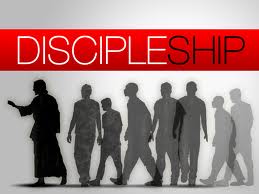 When we’re told to make disciples, to share our lives and the gospel with other people, very often objections spring to mind. Here are three possible objections, along with brief responses to why you might not be making disciples.
When we’re told to make disciples, to share our lives and the gospel with other people, very often objections spring to mind. Here are three possible objections, along with brief responses to why you might not be making disciples.
Objection #1: I don’t have time.
To this objection, Jesus would say: “How can you not have time?†This is why I gave you the gospel, to multiply disciples. Remember the Great Commission? Go therefore and make disciples? We all have time to disciple others. The problem isn’t time; it is value. If we are resisting discipleship, then its because we simply value something else more. We value our free time, our comfort, our work. Also, the value of discipleship is easily worked into things we already do—Celebrating, Recreating, Eating, Serving. It’s not that you don’t have time; its that you don’t have the value.
Objection #2: I don’t know enough.
That simply isn’t true. Most Americans have more theological education than most Christians in the world, and yet African and Asian Christians are multiplying disciples like crazy. Discipleship isn’t knowledge-based; it’s gospel and life based. Don’t put your faith in knowledge; put your faith in the gospel, which bears fruit when we share it and share our lives. It’s putting others first and encouraging, exhorting, and charging them to make disciples. There are people in your neighborhood, workplace, and church that need you. It’s not that you don’t know enough; if you know Jesus then you know more than enough!
Objection #3: I don’t want to.
Two brief responses. First, your wants need to change. You are too easily satisfied. Second, you need to boast more or you need more to boast in. Paul writes: “But since we were torn away from you, brothers, for a short time, in person not in heart, we endeavored the more eagerly and with great desire to see you face to face…For what is our hope or joy or crown of boasting before our Lord Jesus at his coming? Is it not you? For you are our glory and joy†(2:17–20).
Why did Paul make disciples? Hope, joy, and pride. Notice that his motivation comes from looking to the future and to the present. He has a hope for when he stands before the Lord Jesus at his coming. What is his hope? His hope is his joy and crown. He’s looking forward to the day he stands before Christ, and hoping to say to Jesus: “Here’s what I have for you—my joy and my crown—my disciples, Lord. They are my “pride and joy.†The best of the best I can give.
What’s your pride and joy? A book, record, or movie collection, your dog, your house, your bikes, clothes? Is that really what you want to parade before King Jesus when he comes back? “Look I was faithful, I have a great DVD collection.†And is your collection going to motivate you to make disciples? Paul had found a deeper motivation than duty in making disciples. The reason he made disciples is because they were his pride and joy.
Watching my daughter take her first breath was amazing, and so is watching others take their first spiritual breath. They bring you joy before the Lord. Watching my children grow into walking, talking, drawing, reasoning, dancing, loving people brings me so much joy, and so is watching disciples grow into the image of Christ. Pride and joy? Certainly. There’s no such thing as disinterested, joyless boasting. When someone boasts in their collection or children, they take joy in it, show it off. Pride and joy. Paul says of his disciples: “you are my glory and my joy.†Why should you want to make disciples? Because they can be your deep pride and joy before the Lord Jesus.
 Just think, if you knew the future, if you knew what would happen 10, 20, 100 years from now, wouldn’t you live differently? Wouldn’t you alter your actions in reaction to the future, to make the best of your life?
Just think, if you knew the future, if you knew what would happen 10, 20, 100 years from now, wouldn’t you live differently? Wouldn’t you alter your actions in reaction to the future, to make the best of your life?
 When we’re told to make disciples, to share our lives and the gospel with other people, very often objections spring to mind. Here are three possible objections, along with brief responses to why you might not be making disciples.
When we’re told to make disciples, to share our lives and the gospel with other people, very often objections spring to mind. Here are three possible objections, along with brief responses to why you might not be making disciples.